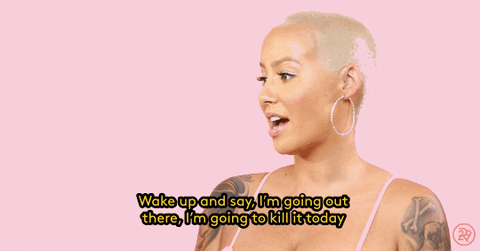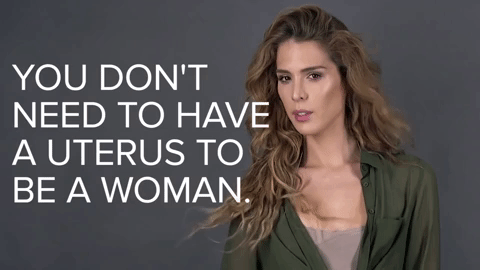An Upgraded Guide To What Feminism in 2019 Is About
A closer, updated look at feminism today.
Feminism today has championed political awareness and has successfully become one of the most relevant topics of our age. Although feminism is too inapt a word to encompass all of the splinter movements that go on within these brackets, to understand what we are fighting for today we need to look at the movement as a sequence of waves.

I like to think of our present feminist phase as intersectional, a weird conflicting concoction of third and fourth wavers.
To better explain the basic skeleton of feminism and it's waves, here is a quick low-down.
The first-wave centered around suffrage and property rights. The second was about legal rights and the systematic discrimination against women, we're still kind of stuck there. The third-wave introduced a layer of queer theory and inclusive thinking. The fourth wave is online.
The topic that we're focusing on today is the here and now, the fourth-wave. How do we hold down the fort, progress with awareness and challenge new issues that are digitally influenced by systematic discrimination against the female-identifying population?
What the third-wave lacked was the actual practice of inclusive feminism. The fourth wave's foundation strongly consists of queer rights and sexuality-based binaries. Women are taking to the web and arming themselves with technology to build a strong, popular and responsive movement.

Sex positivity is also a huge part of our present wave of feminism. Although the influence has come from the third-wave, the emboldening of it is happening currently. Amber Rose's slut-walks embody the boldness and fearlessness of our current state of affairs. The other kind of sex- as in gender has also become quite a hot topic. Although second-wavers would completely disagree, third and fourth wavers are aware and fighting for trans rights.
The war between generational feminism has largely been due to the debate of whether or not trans right is a fight for feminism. As the fourth begins to establish its rules and legislation, second-wavers are throwing out some pretty absurd comments about the course of action being taken.
“If you spread your legs because he said ‘be nice to me and I’ll give you a job in a movie’ then I’m afraid that’s tantamount to consent,” second-wave feminist icon Germaine Greer remarked as the accusations about Weinstein mounted, “and it’s too late now to start whingeing about that.” (Greer, who has also said on the record that she doesn’t believe trans women are “real women,” has become something of a poster child for the worst impulses of the second wave. Die a hero or live long enough to become a villain, etc.)
Despite all the backlash, trans rights have taken a more visible and important role, both in popular culture and feminism and especially fourth-wave feminism.

Another win for women-rights is that the current face of feminism is body-positive. Through online culture, being body-positive has sky-rocketed and the influence is hard not to ignore. All shapes and sizes are empowering and the fourth-wave relies on diversity in visual representation heavily.
Although the core of fourth-wave feminism isn't digital, it plays a major role. It drives debate, propels 'hashtag activism', and cultivates real-life action. This is important because it allows women to build movements that are capable of taking on structural, systematic problems. It also enables teenagers to have a strong grasp of feminist language and concepts.

The fourth-wave is about shouting back in hopes that the fifth-wave will finally have the chance to be equal. Can you imagine a world like that?












